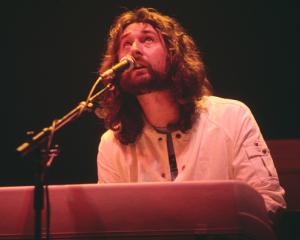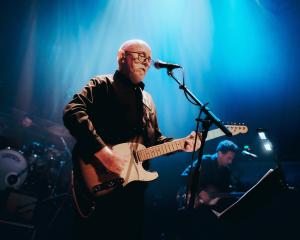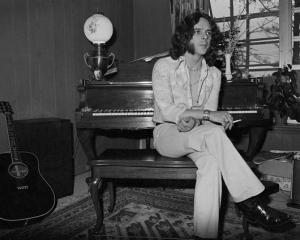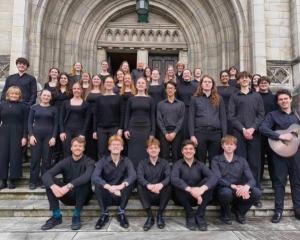
Whether it is Norwegian song, Hindustani and Carnatic styles or Western classical, mezzo-soprano Dr Tessa Romano can turn her hand to them all.
While Western classical music is closest to her heart, she loves discovering new music.
Her interest in Norwegian music came about after a mentor who was keen on the music of Edvard Grieg suggested she take part in a competition by the Greig society. She went on to win the voice division.
''I'm always up for learning new language and relish the challenge. But I did not know what I was getting into.''
Learning to speak Norwegian required some linguistic gymnastics. However, she did find it easier to learn than German, as it had more in common with English.
''There are so many wonderful songs that happen to be in Norwegian that are not accessible to non-Scandinavians.''
This means she is often called on to sing the works or teach, as there were not many singers with those skills.
Her interest in Indian classical music came by chance when she saw a sign advertising a summer camp for music students in the country.
She took a quick lesson to see what it was like and signed up.
''You could learn any instrument but as it was a new style to me I stuck with singing.''

''Indian classical music was an entirely new realm. You could be less inhibited, it encompasses doing your own thing so it was important to have the ability to do that.''
These days she finds when she feels exhausted by Western classical music she can switch to Indian which ''refreshes'' her musically.
Romano also has an interest in Italian, gaining her bachelor of arts degree in Italian from Princeton University.
She has also conducted original research on and performed recitals of Jewish-Italian composers persecuted by fascism, in tandem with works by fascist composers such as Francesco Santoliquido.
As to speaking all of these languages, she does not claim to be proficient.
''... some French, Spanish, Norwegian, a bit of German, some Hindi - my husband's family is Indian.
''Music is a great way to discover a new language and approach it without getting overwhelmed.''
She has also sung in Japanese, Hungarian, Chinese and Polish.
''I understand what I'm singing but that is about as far as it goes.''
Languages and music have always gone hand-in-hand for Romano.
''I love learning new languages and cultures and travelling.''
Having grown up in upstate New York, singing was just part of her life.
''I've always done it. I can't remember a time when I've not sung. I was quite young.''
Her first professional recital was at the age of 12 and she became involved in musical theatre and choirs.
Romano went to her first classical voice teacher at 11, Helen Boatwright, whom she describes as a wonderful woman.
''When I started with her she was in her mid-80s but she was still performing in her 90s. She is definitely one of the most inspiring people I have known.''
She went on to gain her doctorate of musical arts in vocal performance and pedagogy from the University of Colorado Boulder (2018) and a master of music degree in vocal performance from the University of Michigan Ann Arbor.
While she dabbled in jazz singing and musical theatre and later in Indian classical and Norwegian, she continued to come back to classical singing.
''You learn something from one thing, you take it, and use it with the next.''
She found singing Western classical was the most challenging.
''There is so much music out there. It's the music I find I can express myself the most, that is more me when I'm doing it. But in saying that, I still really enjoy the other styles.''
She has also worked with various professional choirs.
Her most thrilling opera experience has been as one of four fellows at the University of Colorado New Opera Workshop programme singing new operatic works by four student composers from CU Boulder.
She got to perform the autobiographical act, which was a non-binary role.
''That is what I love about music is that it allows you to step into the shoes of someone else and [an] experience you would never have, or experience otherwise.
''It is one of the best things to do to build empathy and compassion.''
That performance also helped her figure out the dissertation for her doctorate.
She decided to study vocal changes for people on testosterone therapy.
''It is the most intense vocal change.''
It is also an area which has not been studied much.
''It's a really exciting area. I met some incredible people doing some pioneering work. It definitely was a most gratifying project.''
Romano was working as a freelance performer and voice teacher when an internet job search flagged the University of Otago position.
''It was serendipitous.''
She had travelled to New Zealand, touring the North Island with a University of Michigan choir many years ago, and had met University of Otago voice teacher Judy Bellingham.
''I didn't realise that until I reached out [about this job]. I loved New Zealand the first time I came and my husband and I had been looking at living outside of the United States for a time.''
She applied and got the job and she could not be happier.
''It's a nice fit.''
She enjoys teaching, especially the challenges it brings, such as not allowing her aesthetic biases to get in the way, or her own personal experience.
''Every single instrument is different, everybody is different.
''What works for me might not work for them, even if they are a mezzo-soprano.''
She sees a major part of her role to be encouraging and to support young singers in what can be a very difficult profession in which to make a living.
''We have to help them figure out how music can be part of their lives, even if they are not going to be a professional singer.''
Romano is also busy rehearsing for her first Dunedin recital with pianist Terence Dennis.
''I'm excited about that.''
The concert has given her an opportunity to delve into New Zealand music and she has chosen some works by Ross Harris.
''I love supporting living composers. It's a thrill to sing that song cycle.''
She will also perform music by American composer John Harbison and a cycle based on an Indian devotional poet.
The couple are renting a home on Otago Peninsula and have found the city an easy place to settle.
''It's quickly felt like home, which is surprising, given we are so far from home.
''Everyone has been welcoming. It's a breath of fresh air.''
The city was a very manageable size, compared with New York City where the couple have been living.
''For a city of this size there are a lot of arts offerings available. It could keep you busy every day.''
Romano also has plenty of performance work in the pipeline - singing in Messiah with Auckland Choral and then in Dunedin with City Choir of Dunedin and the Dunedin Symphony Orchestra in December.
It was also enabling Vyas to concentrate on his writing and work on publishing his first book of poetry.
''It's a dream come true for both of us to have the space to grow in our arts disciplines.
''It couldn't have come at a better time.''
They are also enjoying the opportunity to easily get out into nature and they try to regularly tramp on the peninsula.
''It's an amazing spot.''
To see
Tessa Romano, University of Otago Inaugural Faculty Recital, Marama Hall, September 8, 3pm, with Terence Dennis on piano.












